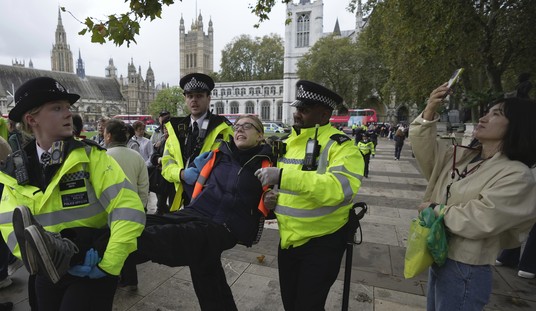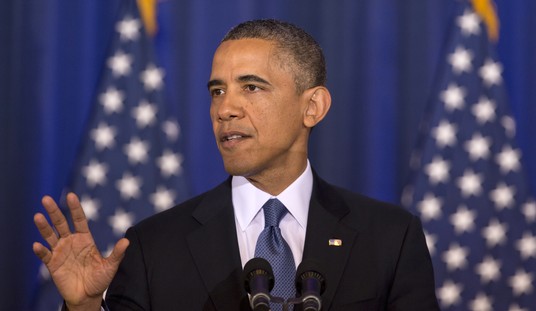In a major blow to transatlantic cooperation on counterterrorism, the European Parliament voted last week to reject an interim EU-U.S. agreement on bank data sharing, which would have permitted American investigators to continue inspecting selected European bank transfer data as part of the Terrorist Finance Tracking Program (TFTP).
The so-called SWIFT agreement — named for the Belgian-based bank cooperative that holds the data — was defeated by a vote of 378 to 196 with 31 abstentions. The vote was held anonymously in what would normally be described as a secret ballot. (As it happens, European Parliament nomenclature reserves the latter designation for a separate procedure, somehow managing to construe a meaningful distinction between a “secret ballot” and “electronic voting, [in which] anonymity is preserved and it isn’t possible to know how each MEP voted.”)
The agreement was defeated despite the submission to the European institutions of a report by French investigative judge Jean-Louis Bruguière that found the TFTP to be a “vital counterterrorism tool.” The Bruguière report specifically identifies numerous terror plots that were either elucidated or indeed quashed with the help of the TFTP. These include the 2002 Bali bombings, the 2004 “M-11” Madrid train bombings, the 2005 London transport bombings, the transatlantic airliner plot that was broken up in the UK in 2006, the planned “Sauerland cell” attack on U.S. military installations in Germany that was broken up in 2007, and the 2008 Mumbai attacks. The report also outlines numerous safeguards put in place by the U.S. Treasury Department and SWIFT in order to assure that data is exclusively requested and used for the purpose of ongoing terror investigations.
Despite the anonymity of the voting procedure, review of the events leading up to the vote makes clear just which block of delegates led the charge against the SWIFT agreement. Members of the Socialist, Green, and “United Left” groups undoubtedly voted by and large against it, and those of the two major “conservative” groups, the European People’s Party (EPP) and the European Conservatives and Reformists (ECR), undoubtedly voted by and large for it.
But support and opposition did not run strictly along party lines. Most notably, the virtual entirety of the German parliamentary cohort — the largest national grouping comprising some 99 delegates — appears to have opposed the agreement regardless of party affiliation. The German opposition evidently included — as Germany’s paper of record, Die Frankfurter Allgemeine Zeitung, has noted — “nearly all” the representatives of Chancellor Angela Merkel’s Christian Democratic Union (CDU) and its Bavarian sister party, the Christian Social Union (CSU). The CDU/CSU is part of the main “conservative” formation in the European Parliament, the EPP.
One week before the plenum vote, in the first clear sign that the agreement would go down to defeat, a majority in the parliament’s Committee on Civil Liberties, Justice and Home Affairs already voted to recommend its rejection. After the committee vote, German committee member Manfred Weber explained to Austria’s Wiener Zeitung that his own CDU/CSU delegation and the Austrian mainstream “conservative” party, the ÖVP, had broken away from the other national delegations in the EPP group and were opposing the agreement. On Weber’s account, the Socialist group displayed “a similar pattern” — an apparent reference to support for the SWIFT agreement among Spanish socialists.
Both the leading German role in killing the agreement and the remarkable cross-party homogeneity of the German opposition were clearly on display in the parliamentary debate that preceded the plenum vote. (Click here to view the full debate with simultaneous translation.) Thus, three of the four group leaders who took the floor to oppose the agreement were Germans. Working himself up into a typically fine lather, Martin Schulz, the leader of the Socialist group, said:
Mr. President! In his book Gulliver’s Travels, the Irish author Jonathan Swift sent Gulliver on a trip … to the land of the midgets. But Mr. Gulliver noticed that he had [instead] arrived in the land of the giants. It seems to me somewhat that American diplomacy has followed Gulliver’s habits in believing that it could treat the European Parliament like a group of midgets. But that’s wrong. …
This agreement … breathes the spirit of the security ideology of the United States of America, but it does not breathe the spirit of the protection of the fundamental rights that we as European deputies must guarantee for the citizens of this continent.
Rebecca Harms, speaking on behalf of the Green group, was no less adamant:
It’s my opinion that we cannot vote for an agreement that many of us — Mr. Weber, Mr. Langen…, Mr. Schulz — have again and again said in public violates existing law. …
We have to act now [i.e., by rejecting the agreement], and thereby we will put ourselves in a better negotiating position as equals to achieve more security and more civil rights in the European Union — and maybe even in the USA.
Harms’s allusion to the common cause she was making with her colleagues Weber, Langen, and Schulz is particularly interesting. Weber and Schulz we have already met. Langen is the German MEP Werner Langen of Chancellor Merkel’s CDU party.
The ever-colorful Lothar Bisky, co-chair of Germany’s “post-Communist” Left Party, also got in on the fun. Speaking on behalf of the “United Left” group, Bisky described the agreement (in English) as “Big Brother’s little sister.”
Curiously, the EPP leadership chose to be represented by Ernst Strasser of the Austrian People’s Party (ÖVP): besides the Germans, the only other national delegation in its midst that was known to oppose the agreement. In keeping with an inner-group compromise, Strasser called for the vote to be postponed. But otherwise his remarks on the agreement were so negative that the EPP deputy from Malta, Simon Busuttil, felt compelled to specify that the group, as such, actually supported it.
By opposing the agreement, German MEPs of all political persuasions acted in harmony with the German government. Last November 30, the European Council, comprising the governments of the 27 EU member states, voted to approve the SWIFT agreement. Germany, however, abstained from the vote, reportedly on account of “data protection” concerns. As the decision required consensus, a German “no” vote would have killed the agreement then and there.
The German opposition seems particularly ironic — and the reasons given for it ring particularly hollow — in light of the German government’s recent decision to purchase stolen Swiss bank data in the name of fighting tax evasion. (See my Pajamas Media report here.)
The German opposition is particularly troubling in light of the fact that several of the terror plots cited in the Bruguière report are known to have had a connection to Germany. This is the case not only for the “Sauerland cell” plot, but also for the foiled UK-based transatlantic airliner plot, and the 2002 Bali bombings. The presumed al-Qaeda financier of the Bali bombings, Reda Seyam, remains, to this day, a free man in Germany. (On Seyam, see my article in Policy Review magazine here.) As recently discussed by Stefan Frank on Pajamas Media here, the al-Qaeda financier Mamoun Darkazanli likewise remains a free man in Germany.
Careful consideration of the Bruguière report also raises questions that the American news media ought surely to pose to the Obama administration. Thus, alluding to Treasury Department data requests, or “subpoenas,” and emphasizing the limited nature of the TFTP, the report notes, “In 2009 a further reduction in the scope of subpoenas took place resulting in the removal of three message types and one country.” But why should any country have been removed from the scope of the program? And just what country was it?
The administration has made known its resolve to find a solution that would permit the TFTP to resume. Especially in this case, it clearly owes the American public answers to these questions.
(Note: All above translations from European Parliament debates are by the author.)









Join the conversation as a VIP Member